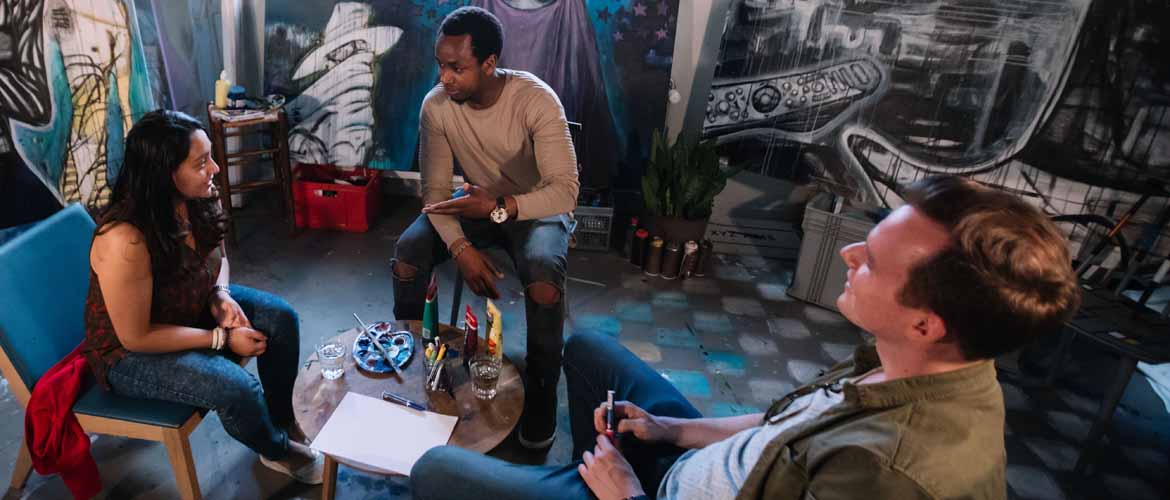Radical Inclusion (Donald's story)
I am only too aware of the painful experiences many TFT members have endured from fellow believers because of their sexuality. TFT has done much in its 40 years to decrease stigma in the church, but we would all agree that there is further to go. Here I share some positive experiences of being included by the church, hopefully to show what can be done when we aspire to inclusion.
After I came out as gay in my all-boys boarding school when I was 15, no one would sit near me or associate with me for weeks. I was already uncomfortable about my gay feelings, and this added to a deep sense of shame. It didn’t help when I was sent to see the house master, then the headmaster, and then the chaplain. They each asked sick-makingly embarrassing questions and told me “It was probably just a phase”. Nobody told me I would be okay if it wasn’t. Around that time, I was invited to the school Scripture Union group. I went because they offered cake. The leaders there welcomed me without asking any questions and their acceptance gave me a safe place to learn about Christ. I wrote to a local minister and his gracious letters told me the shame was not from God, and that although I had not chosen my sexuality, I had a choice about how to live my life. It took time to sink in but when, a year later, God led me to 1 Corinthians 6.9-11, I realised it meant that people like me could be included in the church. I felt the shame fall away, replaced by a profound sense of Christ’s love and acceptance. I became a Christian there and then, knowing that the cost would be singleness, but that God had given me a new hope.
When I went to university, I became afraid again of being exposed as gay and rejected by my Christian friends. When I was offered a place on the Christian Union leadership team, I felt I had to “confess” my sexuality before I accepted. I was sure that “If they really knew who I was”, they would realise they had made a terrible mistake thinking I was suitable. After several desperately awkward conversations, it turned out my fears were unfounded. Not only was I not rejected, but my friends celebrated the choices I had made about my sexuality. That small group of leaders was the first time I felt part of a Christian family, and 25 years later we are still in touch.
Over time, I learned that my identity is in Christ, and not to be defined by my sexuality. Slowly, it didn’t feel threatening to be open with Christian friends, and their responses were consistently supportive and encouraging. At a new church in London, this time my pastor already knew about my sexuality when he asked me to serve on the leadership team. In seeing not my weaknesses, but Christ’s grace at work in me, he “put skin on” the acceptance I had found in Christ. His persistent determination to include unmarried people in all areas of church life is an example well worth following.
Around this time, most of my friends were pairing up and getting married, and I encountered a new fear, of being “left behind” on my own. At times, it seemed the whole church was made up of happy couples producing children with alarming proficiency, and to be honest I felt left out. My pastor said it would help to join a fellowship group, but I was sceptical that that could replace a “real” family, and I signed up grudgingly. To my surprise, the leaders were the only couple there. Many others, like me, were single not exactly by choice but through circumstances. I realised I was not alone at all and we made for a warm and motley family. Psalm 68.6 says “God sets the solitary in families”, and indeed he does.
Later, I moved to Leeds for a new job and again I’ve settled into a small group of similarly non-standard-issue Christians who have become my family. Most of us live near an estate with its fair share of challenges. Our hope is to work with the community there, to be an example for Christ, and to grow God’s family. I am not very good at this, but I am learning from those who do it better. We go to several different churches and work with some secular community organisations, so it can get a bit messy. We don’t compromise on what the Bible teaches, but I think this willingness to tolerate a little untidiness, and to reach out to the least and the lost, is at the heart of what it is to be radically inclusive.
This account by Donald is from a series of articles where churches have included those with same-sex attraction in gracious ways. It was originally published in the Autumn 2017 of "Ascend", the TFT magazine.






